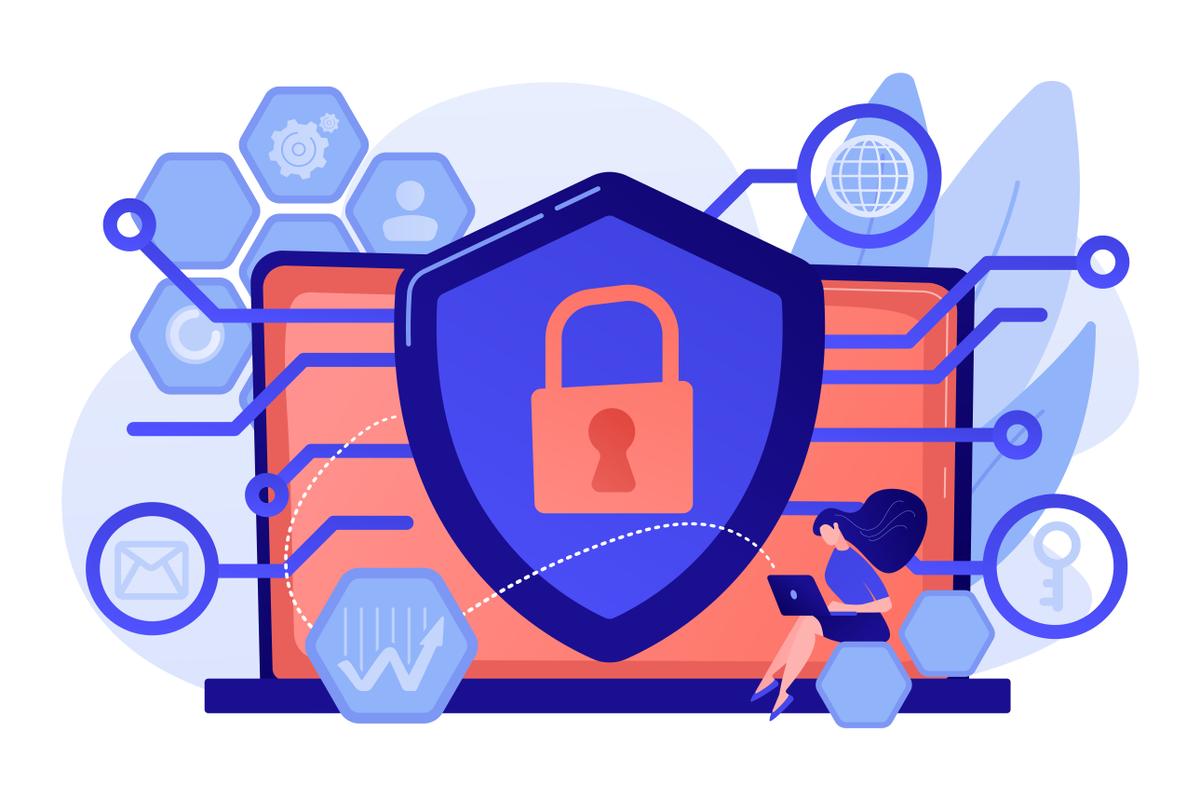
Fortifying the Digital Supply Chain: A Comprehensive Guide to Data Security in Logistics
Feb 18, 2024
Explore the intricate landscape of data security in logistics, from understanding vulnerabilities and navigating the evolving cyber threat landscape to implementing proactive measures and leveraging technological enablers. Discover industry insights, best practices, and the crucial role of Tata Tele Business Services in fortifying logistics networks against cyber threats. Prioritize the integrity and reliability of the global supply chain with this comprehensive guide.
In the dynamic realm of logistics, where the digital thread weaves through every operation, ensuring the security of sensitive data has become paramount. The orchestration of supply chains relies heavily on technology, and safeguarding information as it traverses through various nodes is crucial for maintaining the integrity, trust, and competitiveness of logistics operations. In this extensive exploration, we delve into the multifaceted landscape of data security in logistics, emphasizing its significance, the evolving threat landscape, and a detailed analysis of best practices to fortify against cyber threats.
The Landscape of Data Security in Logistics
Understanding Data Vulnerabilities
Logistics operations generate an immense volume of data, encompassing everything from intricate shipment details to sensitive customer information. This data abundance, while essential for efficient supply chain management, also renders logistics operations vulnerable to an array of cyber threats.
Navigating the Cyber Threat Landscape
The spectrum of cyber threats faced by logistics companies is broad and evolving. From data breaches that compromise confidentiality to ransomware attacks that can lead to financial losses, the consequences are far-reaching. As the digital frontier expands, the logistics industry must stay vigilant in identifying and mitigating these risks.
Regulatory Compliance: A Mandate for Data Protection
Amidst the digital landscape, logistics companies are bound by regulatory frameworks such as GDPR and HIPAA, depending on the nature of the data they handle. Compliance is not just a legal necessity; it is a cornerstone in building a robust data security foundation.
Read More: Top Digitization Trends for Green, Transparent, Automated, and Data-Driven Supply Chain

The Importance of Data Security
Trust and Reputation
Maintaining data security is not merely a compliance checkbox; it is fundamental for fostering trust among customers, partners, and stakeholders. In an era where information is a valuable currency, a breach can tarnish the hard-earned reputation of logistics companies.
Operational Continuity
Data breaches have tangible consequences that extend beyond compromised information. Disruptions in operations can lead to financial loss and operational downtime, affecting the overall efficiency and profitability of logistics operations.
Customer Privacy
Protecting customer information is not only a legal requirement but also a critical aspect of maintaining customer loyalty. In an age where privacy concerns are at the forefront, logistics companies must prioritize safeguarding the data entrusted to them by their clients.
Proactive Data Security Measures
Encryption: The Sentinel of Sensitive Data
One of the fundamental pillars of data security is encryption. By encrypting sensitive data during transit and storage, logistics companies create a formidable barrier against unauthorized access, ensuring the confidentiality of the information they handle.
Access Control: Restricting Access to Authorized Personnel
Implementing stringent access controls is essential to ensure that only authorized personnel can access sensitive data. This granular control over who can view and manipulate information adds an additional layer of defense against potential breaches.
Firewalls and Intrusion Detection Systems: The Guardians of the Gateway
The digital fortress of logistics operations is fortified by robust firewalls and intrusion detection systems. These technologies act as sentinels, detecting and repelling cyber threats before they can penetrate the network.
Regular Audits: Unveiling Vulnerabilities
Conducting regular security audits is a proactive measure to identify vulnerabilities within the system. These audits not only help in maintaining compliance but also empower logistics companies to stay one step ahead of potential threats.
Challenges and Considerations in Data Security
Supply Chain Complexity
One of the inherent challenges in ensuring data security in logistics is the complexity of the supply chain itself. The vast network of partners, suppliers, and vendors poses a constant challenge in maintaining a uniform and robust security posture.
Employee Awareness
Human error remains a significant contributor to data breaches. Training employees on cybersecurity best practices is vital to create a human firewall that can withstand the sophisticated tactics employed by cybercriminals.
Third-Party Risk
Logistics operations often involve collaboration with third-party vendors. While these partnerships are essential, they also introduce an element of risk. Thorough vetting and due diligence are crucial to mitigate the potential for data breaches through third-party channels.
Technological Enablers for Data Security
Blockchain: Enhancing Transparency and Traceability
Blockchain technology emerges as a powerful tool in the arsenal of data security. Its decentralized and immutable nature enhances transparency and traceability, reducing the risk of data manipulation within the supply chain.
AI and Machine Learning: Unraveling Patterns of Threat
The integration of artificial intelligence and machine learning into logistics operations empowers companies to identify abnormal patterns. These technologies play a pivotal role in detecting potential cyber threats before they can manifest into a full-fledged breach.

Building a Cybersecurity Culture
Top-Down Approach: Leadership Commitment
Establishing a cybersecurity-conscious organization starts from the top. Leadership commitment to data security sets the tone for the entire organization, emphasizing its non-negotiable importance.
Continuous Education: The Key to Vigilance
Cyber threats are ever-evolving, making continuous education and awareness programs essential. Regular training initiatives keep employees informed about emerging threats, turning them into proactive guardians of data security.
Data Security Best Practices: Insights for the Logistics Sector
Deploy Industry-Leading Cybersecurity Protocols
Securing the entire logistics network requires a comprehensive approach. Implementing industry-leading cybersecurity protocols and ensuring that employees are well-versed in following security procedures is foundational.
Attain Global Network Visibility with Vendors
Collaborating with third-party vendors introduces complexities in data security. However, holding these partners accountable through contracts and deploying software that provides visibility into the entire supply chain is essential for mitigating risks.
Engage Specialist Security Partners
Recognizing the vulnerability of shipments to theft, engaging specialist security partners becomes imperative. These partners bring advanced tools and technologies to the table, offering solutions like real-time container tracking, network firewall security, and mobile device management.
Conduct Regular Security Audits and Analysis
The hallmark of any successful security setup is regular testing and analysis. Employing white-hat hackers to conduct penetration testing and routine security audits helps identify weak points in the network, enhancing overall security.
Recommended Reading: Top Reasons Why You Need Blockchain in Logistics to Boost Supply Chain Efficiency
Summing Up
In a world where the digital landscape simultaneously empowers and poses threats, the commitment to data security is not just a business imperative but a moral obligation. By prioritizing cybersecurity measures, logistics companies can ensure the integrity, confidentiality, and availability of sensitive data throughout the supply chain. This commitment not only protects operations but also upholds the reputation of the logistics industry as a reliable and secure conduit for the global movement of goods.